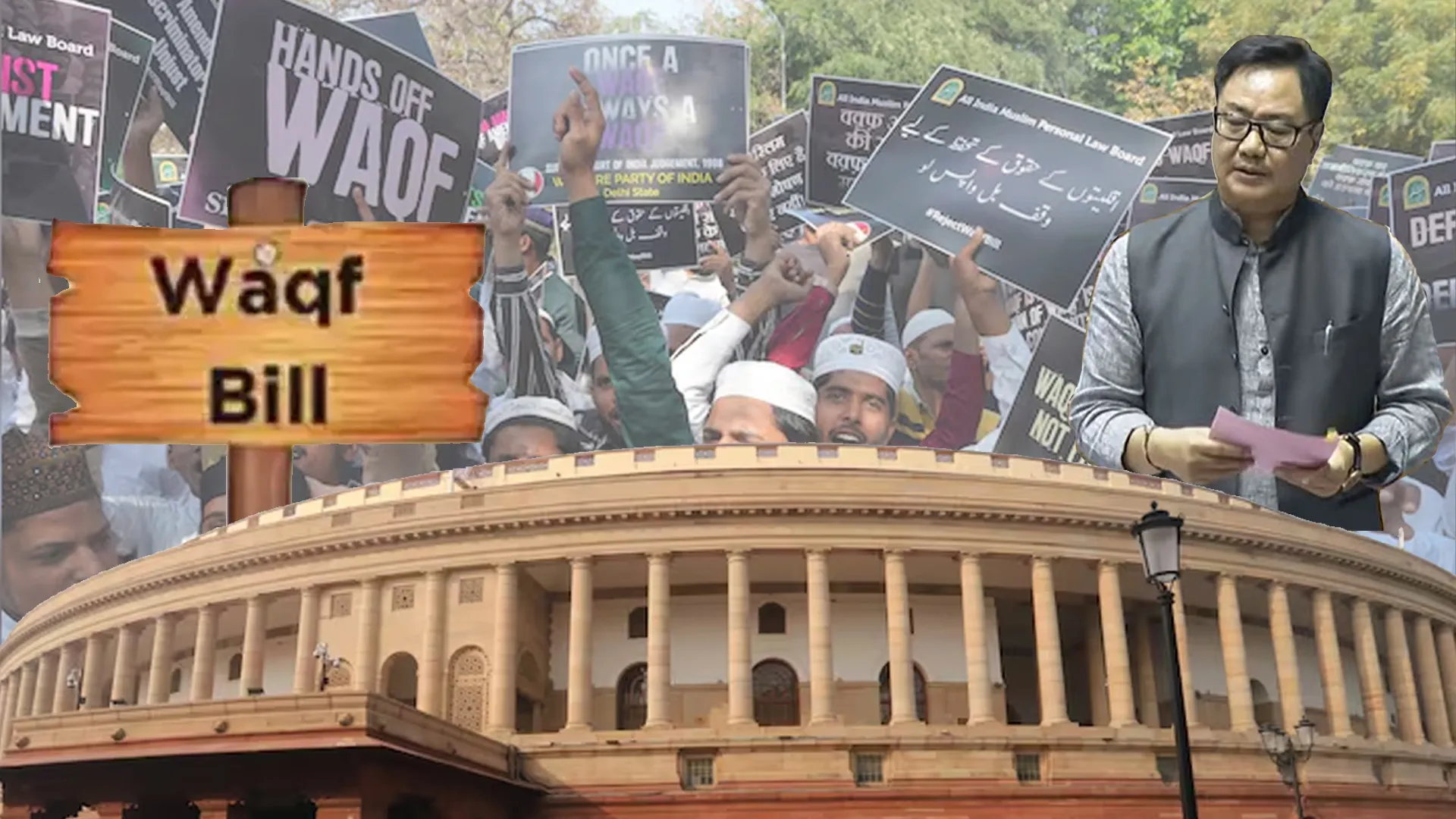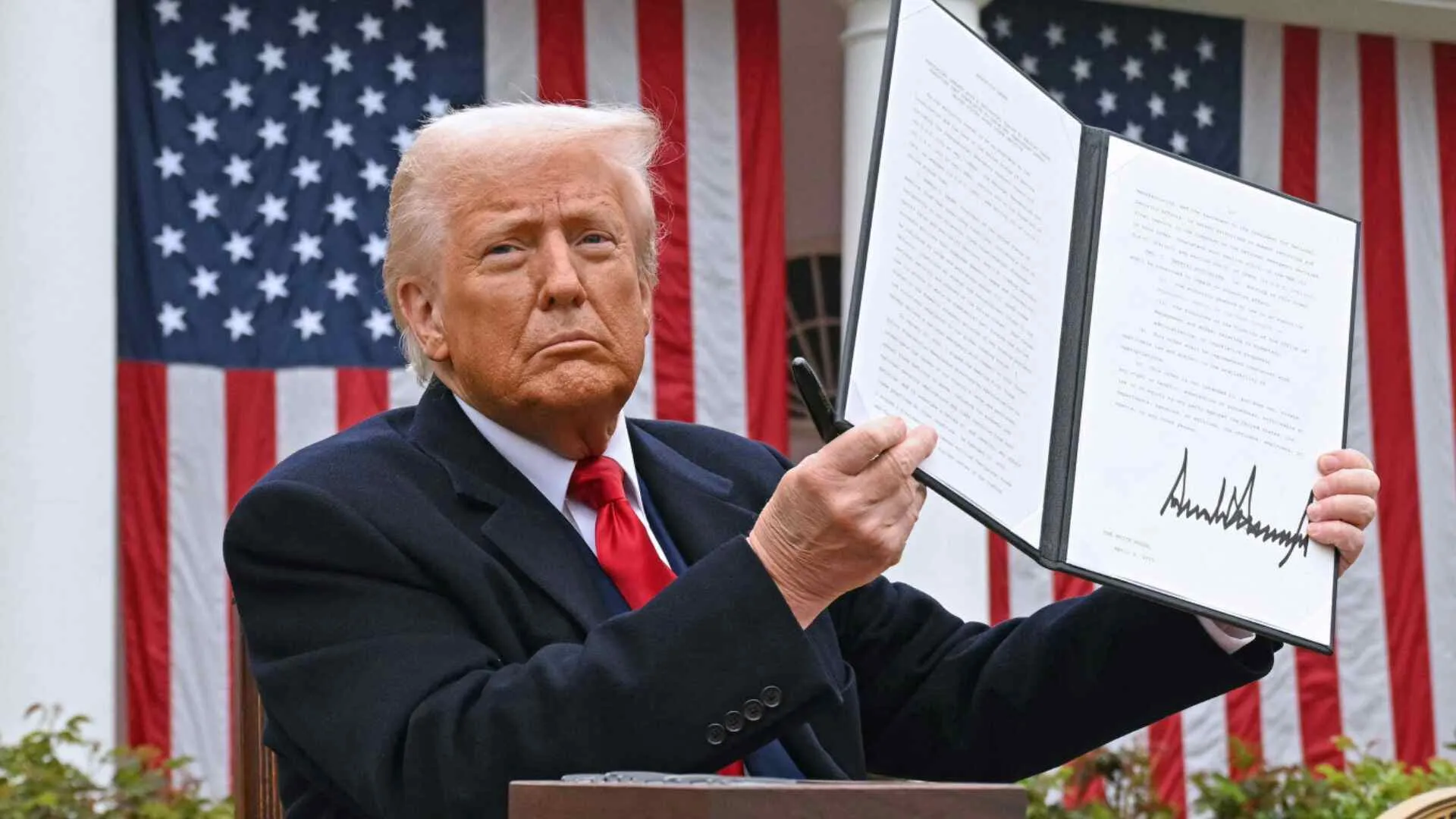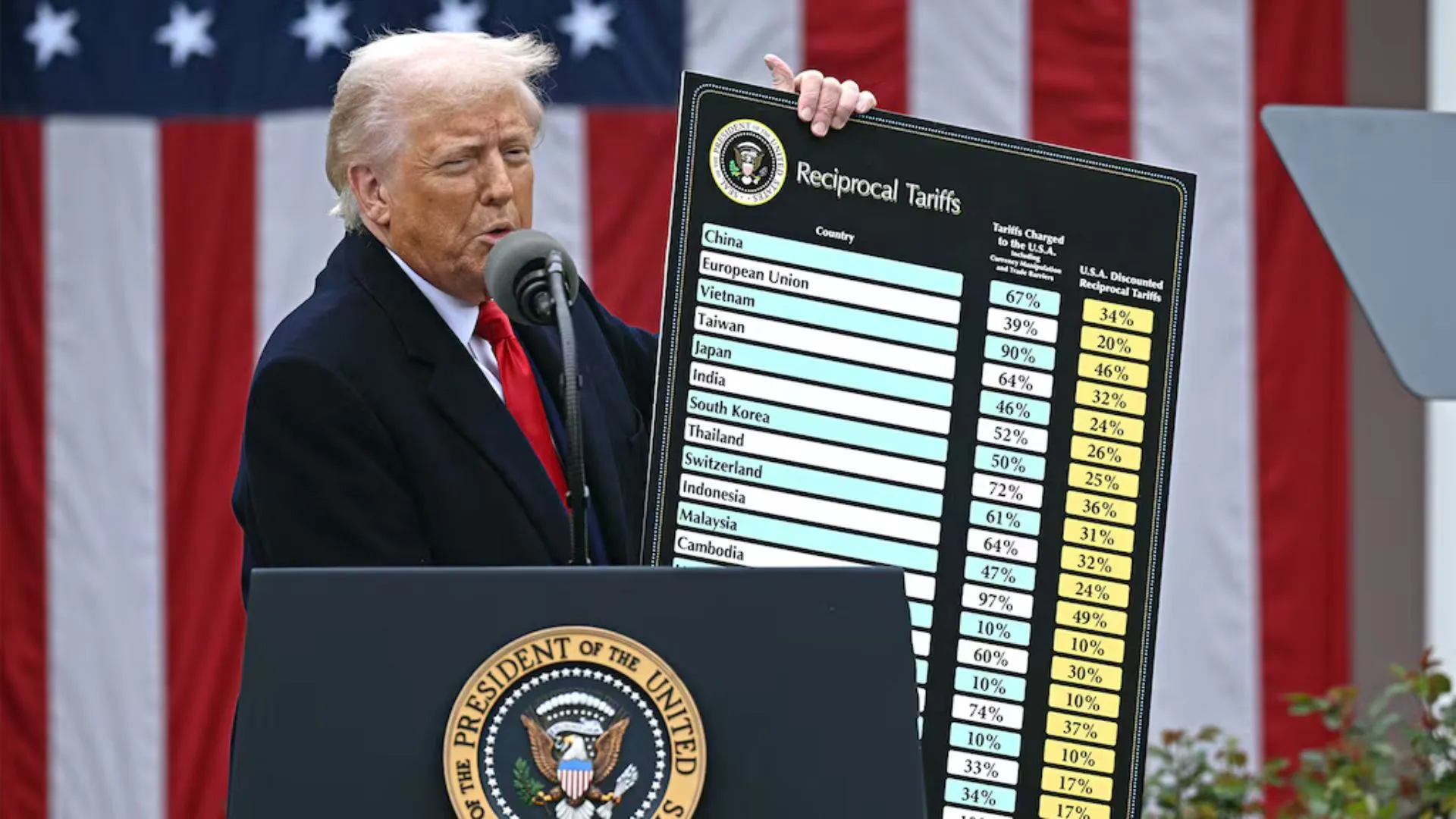The Waqf Amendment Bill was approved by the Lok Sabha late last evening following a heated, several-hour debate. The bill now moves closer to being an Act. The government argues that the amendments will introduce transparency and efficiency into the operations of Waqf Boards.
The Opposition, however, has strongly opposed it as an attack on minority rights and accused the government of seeking to take over Waqf land, covering 9.4 lakh acres.
What Is Waqf?
The word is derived from the Arabic term “waqufa,” which means “to hold.” This means the properties are committed solely to Muslim beneficent causes. As soon as a property is announced to be Waqf, its sale or utilization for any other cause is strictly banned. The ownership of such properties is considered to be given to Allah, and donors cannot recover them.
The institution in India goes back to the 12th century under the Delhi Sultanate. It is on record that Sultan Muizuddin Sam Ghaor, or Muhammad of Ghori, gifted two villages to the Jama Masjid in Multan (now in Pakistan). With the passage of centuries, the number of Waqf properties increased manifold. A notable case in the late 19th century saw a Waqf property dispute from British India reach the Privy Council of London, which initially declared Waqf “invalid.” However, a 1913 law safeguarded Waqf, ensuring its continuation in India.
How Much Property Does the Board Hold in India?
The Board is India’s third-largest landholder after the Railways and the Armed Forces. Waqf boards now own 8.72 lakh properties in India, spreading over nearly 9.4 lakh acres, as per the Minority Affairs Ministry. The estimated market value of these properties, estimated, stands at Rs 1.2 lakh crore.
Out of the 3,56,051 Waqf properties, most are located in Uttar Pradesh, where there are more than 1.2 lakh properties under the Waqf Board. There are also 16,713 movable properties, the highest number of which is in Tamil Nadu.
The government asserts that most Waqf properties are involved in disputes, usually cases of encroachment. As many as 40,951 property cases are pending before tribunals at present, and almost 10,000 of these have been filed by Muslims against the Waqf administration. The Centre says that the absence of provisions to refer disputes to courts delays their settlement.
Monuments and Waqf
Most famous historical monuments in India belong to the board. Some of the well-known examples are:
- Jama Masjid, Delhi – Under the administration of the Delhi Waqf Board
- Fatehpur Sikri (including the Tomb of Salim Chishti)
- Bada Imambara, Lucknow
The ownership of monuments by Waqf authorities has resulted in administrative conflicts with the Archaeological Survey of India (ASI). For example, the Uttar Pradesh Sunni Waqf Board previously argued ownership of the Taj Mahal. The Supreme Court, however, dismissed the argument when the board could not provide documentary proof. Such conflicts also arise regarding protected monuments such as Safdarjung Tomb, Purana Qila, and the Humayun’s Tomb complex.
Controversial Claims by the Board
A number of controversies over the board’s property claims have appeared in the past few years.
Tamil Nadu Village Dispute
In 2022, the Tamil Nadu Waqf Board announced Thiruchenthurai village as Waqf property, leaving residents stunned. A local farmer named Rajagopal found out when he tried to sell his land and was requested to take an NOC from the Waqf Board. The village, home to a 1,500-year-old Hindu temple, had protests, and the issue is still pending.
Gujarat Housing Society Incident
A Gujarat housing society resident had his apartment registered with the Waqf Board, which was thereafter utilized for religious activities. This concerned that private property can be turned into Waqf without the consent of the community, which needed to be reformed.
Main Reforms in the Waqf Amendment Bill
The new Amendment Bill brings several significant reforms:
Eligibility for declaration: The declaration of a Waqf property can only be made by a Muslim who has practiced Islam for the past five years.
Ownership criterion: A property can be declared as Waqf only when the donor legally owns it.
End of ‘Waqf by User’: The existing legislation permits properties to be considered Waqf as a result of extended religious utilization. The proposed bill does away with this feature.
Protection of Rights of Inheritance: Declaration cannot deprive legal heirs, including women, of their inheritance rights.
Exclusion of Government Property: Government property cannot be classified as Waqf anymore.
Restriction on Waqf Board Powers: The boards will not be able to decide whether a property is Waqf or not.
Reform in Waqf Council and Board Composition
- The 1995 Waqf Act mandated that all Central Council members be Muslims and required at least two women members.
- The new bill requires two non-Muslim members and ensures at least two women members from the Muslim community.
- State governments can now nominate MPs, MLAs, or MLCs to the Board, even if they are non-Muslims.
- The Bill provides for Bohra and Agakhani community representation if they possess properties in a state.
According to the current law, Waqf Tribunal orders are final and non-appealable in courts. The new bill provides for appeals to the High Court within 90 days.
Government’s Position on the Bill
Minority Affairs Minister Kiren Rijiju, who moved the Bill in the Lok Sabha, has said, “Crores of poor Muslims will thank Prime Minister Narendra Modi once it becomes a law.”
He also justified the amendments, saying many properties are ill-managed, and this law will make them more accountable.
Why the Protests?
Muslim bodies, headed by the All India Muslim Personal Law Board (AIMPLB), have opposed the bill, describing it as discriminatory. AIMPLB President Maulana Khalid Saifullah Rahmani said:
“If this amendment is passed, there will be a surge in illegitimate governmental and non-governmental claims on Waqf properties, making it easier for Collectors and District Magistrates to seize them.”
The Opposition parties, including Congress and the Samajwadi Party, have also strongly opposed the bill. Samajwadi Party Chief Akhilesh Yadav criticized the government, saying, “The Bill has been brought to mask the government’s failures.”
AIMIM lawmaker Asaduddin Owaisi ripped apart the Bill in Parliament, branding it as unconstitutional and blaming the BJP for instigating religious unrest.























